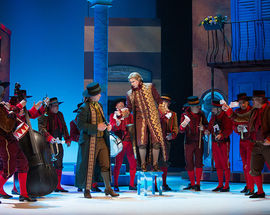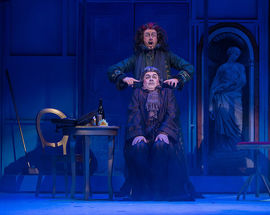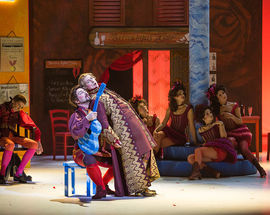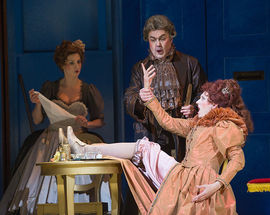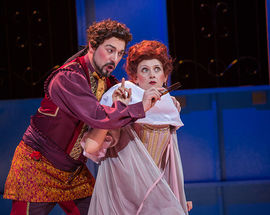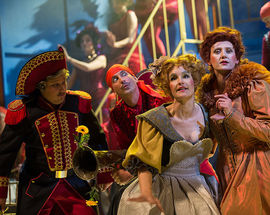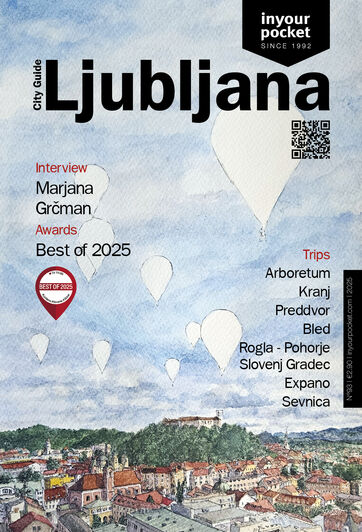In the first half of the 19th century, the Italian composer Gioachino Rossini (1792-1868) was probably regarded as a most popular among his kind. In Vienna, he outshone even Beethoven and Schubert; therefore it is not surprising at all that many anecdotes about him and his work were already circulating during his lifetime. He was first of all referred to as a ‘mass opera producer’, composing numerous ‘similarly sounding operas’ and showing much more interest in the French cuisine then in musical creation. Wagner once expressed the following opinion about his operas: "You know one Rossini's opera, you know them all."
And, it is a fact that Rossini composed a lot and very quickly. Some of his operatic works were even created in two to four weeks. That is the reason why he often ‘borrowed’ some fragments or pieces from his previous operas. The most typical example was a famous overture to The Barber of Seville, originally planed for other two operas. None the less his The Barber of Seville (1816) is considered a peak - and a magnificent ending at the same time - of the once exceptionally popular tradition of opera buffa.
The opera was composed after the libretto based on the favourite comedy by Pierre-Augustine Caron de Beaumarchais Le Barbier de Séville. Rossini's comical opera is still as catching as it was in the old times and remains one of the most frequently performed works from the operatic literature in general. It is above all due to the spell of its witty music, full of some pleasing and occasionally sharp rhythmic melodies and characteristic fluttering ensemble finales. And indeed it has been long time ago since the solo arias became the flagship acts of bass singers, coloratura sopranos and baritones.
Performed on the opera stages around the world every now and again are many new versions of this opera - from the most extreme and experimental to the most conservative ones. This work is by all means attractive, especially due to its eloquent score, closely following the development of events and interaction of roles through numerous and unexpected twists and turns in the story, creating a powerful aesthetic connection between the story and its musical narrativity.
To sign under the direction of The Barber of Seville this time is one of the leading and versatile Croatian directors Krešimir Dolenčić. In his long career he has created more than 50 drama and opera performances in Croatia, United States of America, Great Britain, Germany and China. He has so far directed on our stage Offenbach's The Tales of Hoffmann (1992); Puccini's The Triptych – The Cloak (Il tabarro), Sister Angelica (Sour Angelica) and Gianni Schicchi (1993), Debussy's Pelleas and Melisanda (1997) as well as Oedipus Rex by Stravinsky and Triumph of Aphrodite (Trionfo di Afrodite) by Carl Orff (1998).
Text from www.opera.si.


